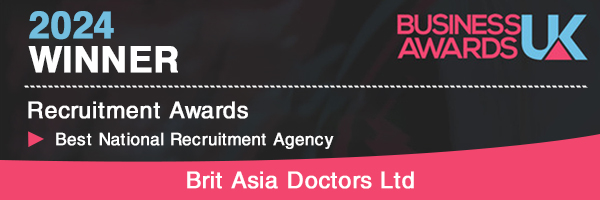Pharmacists are experts in medicines and their use. They give consultation on various health issues and help people with different types of medical conditions. With their wide knowledge and expertise in medicine, they make sure that the patients are well acquainted with the proper usage of the medicine prescribed. The procedure of becoming a pharmacist in the UK is not that complicated but it demands you to fulfil certain requirements and live up to some professional standards. Below we have discussed the step-by-step procedure of becoming a Pharmacist in the UK along with necessary information which will assist you in your path.


What are the entry requirements for a pharmacist?
An authorized Masters degree in Pharmacy (MPharm) from a certified university is a must. You must also have at least a year’s training in a hospital pharmacy.
After completing university, you need to pass a registration exam. Prior to practising as a pharmacist, you should be registered with the General Pharmaceutical Council.
What are the day-to-day responsibilities of a pharmacist?As a pharmacist your daily responsibilities would include the following:
- Supervising healthcare experts on the right and proper usage of medicines.
- Ensure that the patients use their medicines safely.
- Look after any changes in medications and advising on their proper usage.
- Provide advice to patients so that medication is beneficial and causes no harm.
- Acquaint the patients with correct form as well as the amount of drug dosage.
- Familiarise the patients to the risk-factors or side effects of the medications prescribed.
- Prepare and dispense medication.
To encapsulate, pharmacist’s job revolves around medicines. Their proper dosage as well as proper usage. It is essential for the patients to be well acquainted with the medicines they take. Pharmacists help patients to do so. Pharmacists may also supervise pharmacy technician and pharmacy assistants in purchasing, quality testing or dispensing medicines.
What skills do I need to be a pharmacist?To be a pharmacist, you must have the following skills:
- Must be responsible, as many patients rely on you.
- Excellent communication skills.
- Must be a good listener.
- Effective conversational skills so as to deliver advice to the patients clearly.
- Supervision skills so as to supervise the staff with medications.
- Cooperative behaviour with team members.
- Authentic and analytical.
- Science intelligence
- Strong memory power to remember the names of different medicines.
- Exceptionally good customer skills so as to understand and be able to help the patients with their problems.
- Attentive towards the health of the patients.
There are nine standards for every pharmacist to follow. These standards account for the delivery of safe and adequate care. The statement of the standards is a document of what pharmacists are expected to do. Professionals also look for these standards to be inculcated in themselves as well as their colleagues.
You can have a look at the prevailing standards for Pharmacy professionals.
How can I register as a pharmacist?For registering as a pharmacist, have a look at the following details.
- If you have attained your training from England, Scotland, Wales or Northern Island, you must have a UK-approved Qualification for pharmacists.
- If you are from the European Economic Area, you should have the qualification of EEA-qualified pharmacists.
- For residents of non-EEA countries, you must have a qualification of Overseas(non-EEA) qualified pharmacist.
Before you can apply to register as a pharmacist with the GPhC, you must complete:
- an Overseas Pharmacists Assessment Programme (OSPAP)
- 52 weeks of pre-registration training in England, Scotland or Wales signed off as satisfactory by your tutor.
- the GPhC registration assessment with a pass result
OSAP?
What is OSAP?
The Overseas pharmacists' assessment programme (OSPAP) is a postgraduate diploma that is undertaken as the first part of the route to registration required by overseas graduates. The OSPAP is a one-year course designed to ensure that those who have qualified overseas receive the appropriate education and training to prepare them for UK practice and entry to pre-registration training.
What are the entry requirements?
The OSPAP course is available to those who hold a pharmacy qualification gained overseas and are registered, or eligible to register, as pharmacists in their country of qualification.
Are you eligible to apply for an OSPAP course?
If you decide that you do want to complete education and training in Great Britain so that you can apply to register with GPhC, GPhC will need to assess whether you are eligible for the OSPAP course. This will be done by considering your previous qualifications and work experience, your fitness to practise and your English language competency.
You need to fill this eligibility form so that GPhC can assess your eligibility. For this, you will need to pay a fee of £687, which will cover the cost of processing your application.
Evidence of English Language ProficiencyThere are three types of acceptable evidence that you can provide:
1. A pass result of the academic version of the International English Language Testing System (IELTS) test.
IELTS, the International English Language Testing System, is designed to assess the language ability of candidates. IELTS test can be taken at one of the centres across the world.
The result must include:
- 1. an overall score of at least 7
- 2. Scores of at least 7 in every four areas of reading, writing, listening and speaking
- 3. all scores achieved in one sitting of the test
Note: The result should be from a test taken no more than two years before the date of your application.
2. A pharmacy qualification that has taken three or more years to complete and has been taught and examined in English, in a ‘majority English speaking’ country other than the UK.
You will need to show that your training provided you with the opportunity to demonstrate your ability in reading, writing, listening and speaking in English. The entire course must have been taught and examined in English. At least 75 per cent of any in-service training that you completed as part of the course must have been carried out in English.
3. Practice for at least two years as a pharmacist or pharmacy technician in a majority English speaking country.
You must provide a detailed written reference from your employer(s) which sets out your knowledge of English. This can be done by asking your reference to fill the English language competency reference form available on the GPhC website.
Assessing your Pharmacy Qualification
If your pharmacy qualification is not assessed as equal to at least a UK bachelor’s degree in pharmacy, you must carry out an assessment of the syllabus of the degree that you studied. You can use the International comparative framework assessment form for your assessment.
Pre-Registration training Placement
The pre-registration training placement gives trainees the opportunity to develop and demonstrate the skills, knowledge and behaviours they need to practice which is expected from a UK pharmacist.
During the training process, you would be required to work at a GPhC approved site under a GPhC approved trainer. The training will last for a period of 52 weeks and during the same, you will be expected to demonstrate that you meet all the necessary performance standards that are listed in the pre-registration manual.
Registration Assessment
What is the registration assessment?
The registration assessment is one of the ways through which GPhC tests that pre-registration trainee pharmacists can demonstrate that they understand how to apply knowledge appropriately and in a timely way, to make professional judgements. In order to become a registered pharmacist, passing the registration assessment is one of the criteria that trainees need to meet.
When and where will the assessment happen?
Usually, there are two registration assessments per year that happen in the month of June and September. Candidates are required to answer two question papers and they have three attempts to pass the entire assessment in one sitting. The assessment is conducted in locations across the UK.
You can find more details about the Pre-registration assessment here.
Revised indemnity requirements
As a condition of your registration, you are required to have a professional indemnity arrangement in place before you start to practise. A change in law has brought a change in the way the GPhC ask you to declare the indemnity arrangements that you have in place. Thus make sure that you understand about the new declarations.Find out more about professional indemnity requirements .
Registering as a pharmacy technician
If you want to practise as a pharmacy technician in the UK, you must be registered with GPhC. If you have been registered or trained as a pharmacy technician outside the UK then you must complete some additional qualifications in the UK before you can apply to register. Additionally, you will also be required to complete the work experience.
You will need to complete:
- one of the recognised competency-based qualifications listed in the criteria for registration as a pharmacy technician.
- one of the knowledge-based qualifications listed in the criteria.
- a minimum of two years’ work-based experience in the UK, Isle of Man or the Channel Islands.
You can acquaint yourself with the criteria for registration as a pharmacy technician and get more information about the same.
What will be included in the UK work experience?
In order to qualify for the registration, you will be needed to complete a UK work experience. During this period you must be working under the supervision, direction or guidance of a pharmacist or pharmacy technician. You must be directly accountable to them for a minimum of 14 hours per week.
In which case can the UK relevant work experience be reduced?
In case you have enough evidence that you have a pharmacist or pharmacy technician qualification from a non-EEA country, and are eligible to practise as a pharmacist or pharmacy technician in that country, you do not need to complete a full two-year period of work experience.
You will need to produce the following evidence to reduce the UK relevant work experience requirement:
- previous qualification, including an academic transcript from your course provider
- eligibility to practise in the country where you qualified, for example, your registration, certificate or licence to practise
After attaining a certified qualification, you can join the Royal Pharmaceutical Society. Joining this will give you access to annual continuing professional development. This will assist you to keep yourself updated with pharmaceutical knowledge and will help you in sharpening your skills. Royal Pharmaceutical Society’s courses include conferences and seminars where you can communicate your ideas and improve your expertise.
How much will I be paid as a Pharmacist?Pharmacists work in shifts. For an NHS working, pharmacists may work for 37 hours weekly. Payments are dependent on the bands according to the Agenda for Change Payments. Pharmacists with a better experience can earn up to £44,461 according to reviews. Starting income with 1 year or lesser experience may be £29,471.
Job VacanciesThere are more than 40 thousand registered pharmacists. There are many job vacancies available in the NHS. You can choose from the various NHS organizations or private pharmacy, pharma companies.
Career progressionFor pharmacists, the following career progression options are available:
- You may exercise your expertise in a specific field such as mental health or cancer treatments.
- You can also go to research or teaching.
- You can organize your own pharmacies and handle the work solely or with other professionals.
- Management is another option. Being a head of local pharmacy might rest the responsibility of staff and budget on your shoulders.
How can Britasiadoctors help you?
“The process of getting a doctors job in the UK is a bit complicated and the very first step that you should take to ensure that the process is hassle-free is choosing a partner that can guide you through each step. The team of Britasiadoctors is beside you from the point you decide to work as a doctor in the UK till you achieve your dream. With our experience and prowess, we will make all the stages including the registration process, exam and interview preparation, visa application and your arrival in the country as easy and as best we can. Our robust support team will guide you through all the steps so that you can complete the process smoothly. Having gone through the process ourselves, we can give you personalised advice and ways to make life easy for you. Our major role will be to organise interviews, connect you with the right employer, help you through the visa process and anything we can do on your way to success. For more information, please visit our service section.
Thanks!




